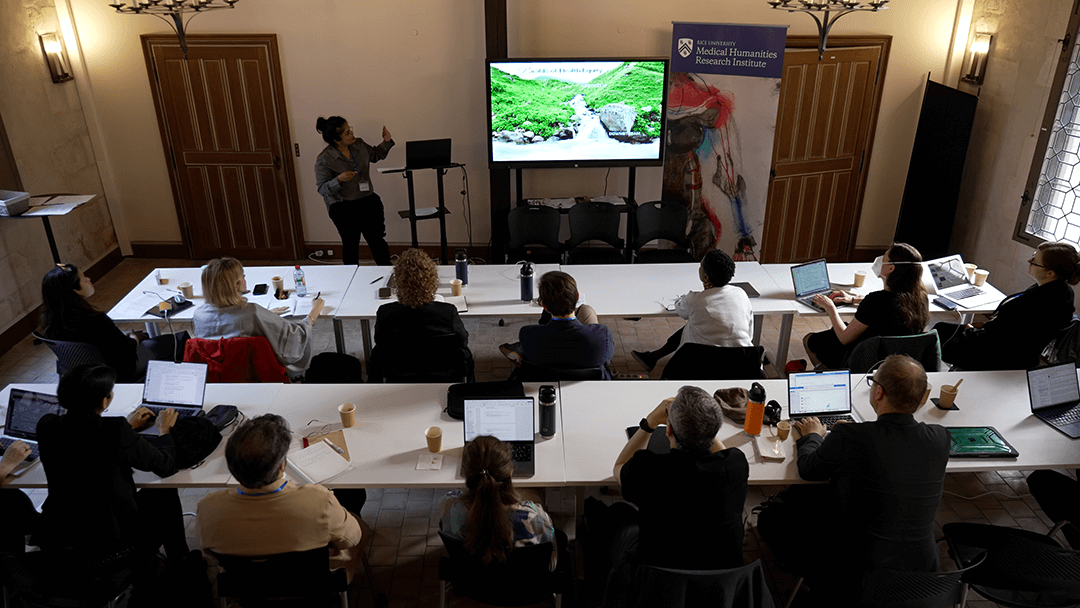Rice University’s Medical Humanities Research Institute (MHRI) recently held a research summit at the Rice Global Paris Center, convening leading international researchers to explore critical issues at the intersection of medicine and humanities. The workshop, titled “The Future of Medical and Health Humanities,” featured discussions on a range of topics including artificial intelligence (AI), racial health equity, patient narratives, translational methods, clinical integration of humanities-based insights, human-centered design and the role of emotions in health care.
“We have a gathering here of the leading experts in the world on medical and health humanities,” said Kirsten Ostherr, the Gladys Louise Fox Professor of English and director of MHRI. “We are focused on the questions of what kind of research we need to develop and what new methods we need to develop to move the field forward for the next five years.”
The summit underscored the vital role that the humanities play in the biomedical research enterprise.
“Humanities is critically important to making a complete biomedical research enterprise,” said Ostherr. “We have a lot of incredible, innovative research right now that is driven by science and technology and by big data. But we need the medical humanities to help us understand the human experiences that are at the heart of health care and that really shape how we understand illness and wellness. Without that, our research enterprise is incomplete.”
The medical humanities program at Rice examines the social, cultural, ethical and historical dimensions of health and disease. For example, researchers and students investigate how religion influences perceptions of illness, how death is conceptualized and the types of care desired at the end of life. The program also explores the legacy of harm to underrepresented groups and the ongoing health disparities stemming from that history. Additionally, the impact of modern technologies like AI and big data on doctor-patient communication is a key area of study.
Melissa Bailar, senior lecturer and MHRI executive director, highlighted the transformative potential of the humanities in medicine.
“How can the humanities transform medicine so that it’s more focused on the human?” Bailar said. “Not just on the biology, but on the full person with their personal experiences, their stories, their histories, their values, their cultural context, their communities in which they live.”
Paris was chosen as the summit’s location due to its central position for European collaborators and the excellent facilities at the Paris Center.
“Paris is a great place to convene all of these researchers because Rice is fortunate to have this beautiful setting where we can gather people together,” Ostherr said. “We’re really invested in having an international impact in the work that we do, and this is a perfect place to do it.”
Bailar added that the summit provided a platform for fruitful discussions and potential collaborations.
“It’s exciting to see connections across so many people’s work, who have never met before but may have read one another’s work previously,” Bailar said. “I also see a lot of research collaborations that are already percolating across countries, institutions and different disciplines. A lot of the talk has been about how to have productive collaborations between academics and clinicians.”
The event concluded with plans to publish a special issue of a journal featuring papers from all the presenters. These papers will highlight their respective research areas and outline key strategies to advance the field of medical humanities in the future.
“The talks have been really wonderful, very focused and very creative,” Ostherr said. “We’ve covered a lot of different aspects of the field of medical humanities and where people see opportunities for development.”
Learn more about MHRI here.

